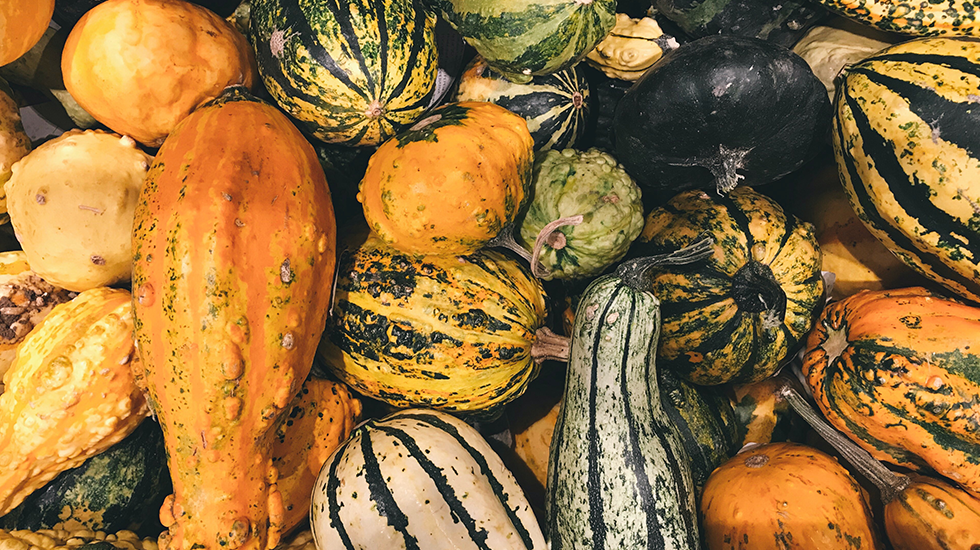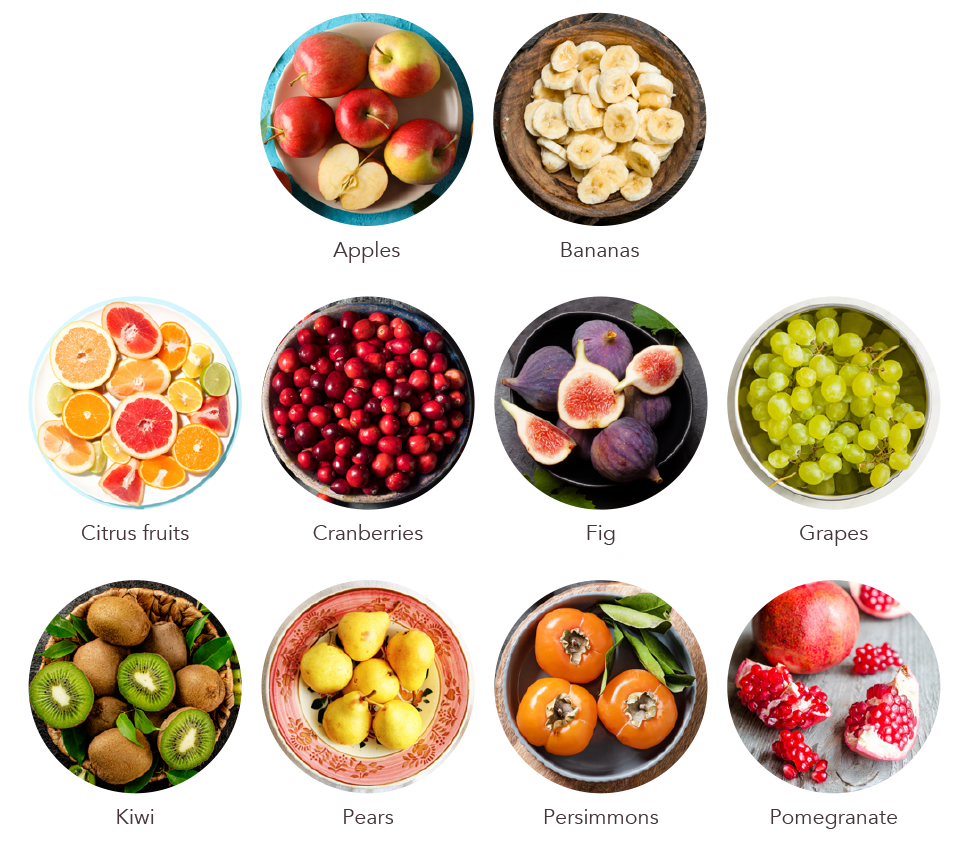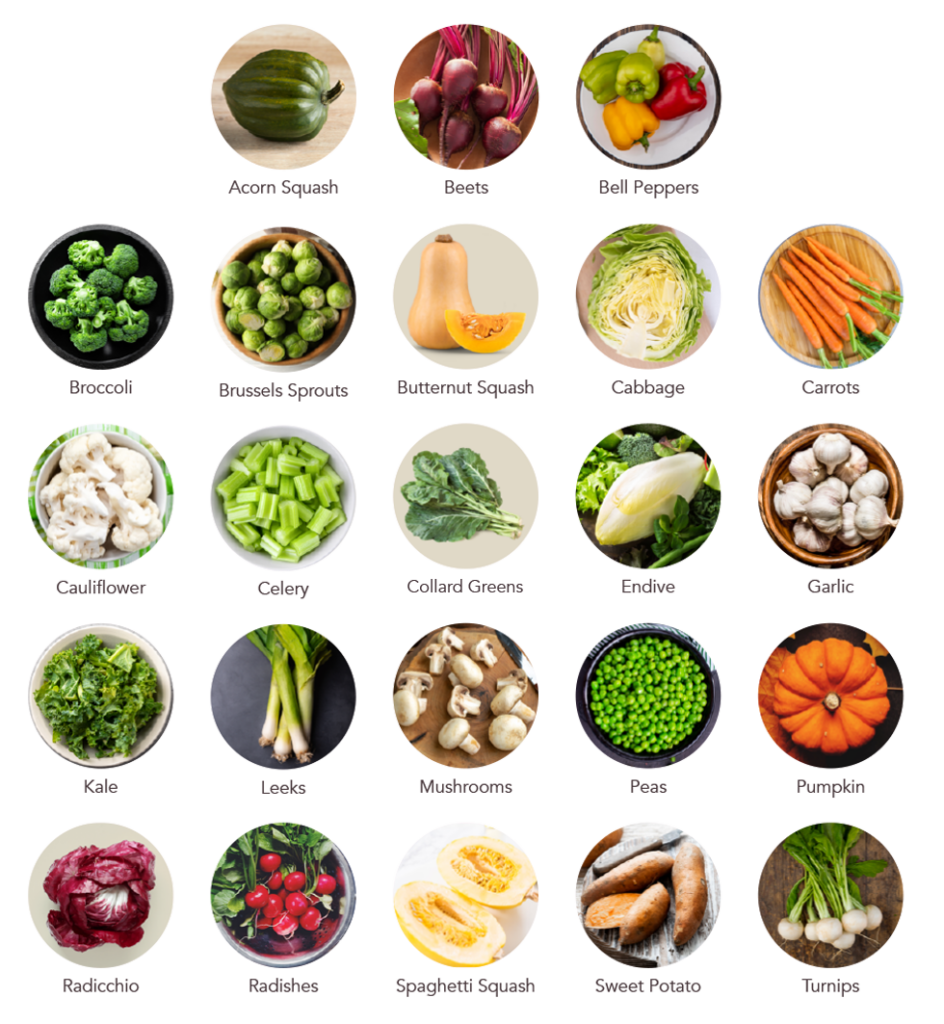


Written by Annie Cavalier, MS, RDN, LD
Eating seasonally is by no means a new concept (it was the only option available before mass transportation of food became a thing), but it has recently regained so much popularity that you can find many restaurants around the country using phrases like “seasonal menus” and “farm to table” in their marketing. But what exactly is seasonal eating, and is it something you should be doing?
Seasonal eating is exactly what it sounds like – eating foods that are in season. Different foods grow better in different times of the year, therefore affecting its peak harvest season. Have you ever noticed how when you get strawberries in the summer, they are often juicy and have a deep red color all the way through? But if you bit into a strawberry in the middle of winter, there is a good chance you would find that it is mostly white on the inside and not nearly as flavorful. This is due to the variations in quality between foods that are in season versus out of season.
As fall approaches, there are so many incredible fruits and vegetables starting to grow! Keep reading to learn more about the benefits of eating seasonally and to learn what foods are in season during fall (September, October, and November).
Click here to download NBCF’s Fall Food Guide.
The nutrient content of fruits and vegetables is typically highest when it is at its peak ripeness, which is generally when produce that is “in season” is picked. However, foods that are not in season are typically flown in from other areas where they are growing better. Because of this transportation process, most produce that is not in season is harvested long before it is ripe, so it never develops its full nutrition potential or its proper flavor. Produce also begins to lose some of its nutrients after it has been harvested.1,2 Therefore, the longer it has been since a fruit or vegetable has been harvested, the more nutrients it has lost.
With that being said, fruits and vegetables that are not in season are still very nutritious and healthy (so don’t be afraid to get them if you really want to!); they just won’t have as high of nutrient content as they do when they are in season.
Not all foods contain the same nutrients, which is why it is so important to include a variety of different foods in your diet. This is the reason for the old saying, “eat the rainbow.” Eating seasonally helps ensure that you will be eating a variety of fruits and vegetables throughout the entire year, therefore maximizing your nutrient intake.
Eating seasonally helps lower the environmental toll associated with food transportation because foods that are in season can be purchased more locally. This helps cut back not only on fuel emissions directly from the transportation process but also reduces the amount of energy needed for refrigeration during transportation and storage.3 Purchasing food locally also helps support local communities and farmers!
The great news is that eating seasonally is also good for your bank account! The simple concept of supply and demand states that as the supply of an item increases, the cost will go down. This is exactly what happens with food. When food is in season, there is a lot more of it, so grocery stores are able to price it at a lower cost.
The Takeaway: Eating seasonally is a great, easy way to boost your nutrient intake, save money, reduce your environmental footprint, and support local farmers! What’s not to love?
However, it may not always be possible to eat only what is in season. It is important to prioritize overall fruit and vegetable consumption, and you can take advantage of foods that are in season while doing this!
Below is a list of some of the foods that are in season during fall! Something to keep in mind is that the foods that are in season do vary by region. I always recommend stopping at the local farmer’s market if you have one near you to get familiar with what food is grown in your area and to support your local community. You can also use the Seasonal Food Guide and search by your state of residence for more information on what food is grown at different times of the year.4,5


Download NBCF’s Fall Food Guide by clicking here.
Whether you purchase your fruits and vegetables at a grocery store or farmer’s market, remember to wash all fresh produce well by rubbing them under cold running water. You should do this regardless of if you are eating the skin or if the item is going to be cooked versus eaten raw. This will help get rid of the bacteria that may be on these foods and promote overall food safety, which is extremely important, especially when your immune system is low during cancer treatment. You can also use a vegetable scrubber to help clean anything with thick skin, but the FDA and CDC do not recommend using soaps, bleach, or commercial produce washes as these can leave residues behind that have not been tested for their safety.6–10
Note: The information presented in this post may not be suitable for every person or during rigorous treatments for breast cancer. Please seek advice from your doctor or medical team if you have any concerns before implementing a change in your diet.
If you’re looking for more on nutrition care, food safety, and managing cancer treatment side effects with a balanced diet, download the free Nutrition Care for Breast Cancer Patients eBook today!
Looking for more seasonal eating guides? Check out our guides for winter, spring, and summer!
Resources:
Donations are always appreciated, but there are lots of great ways to get involved.
thx for all the great info…
B